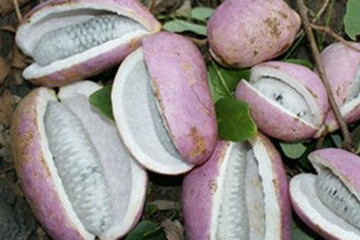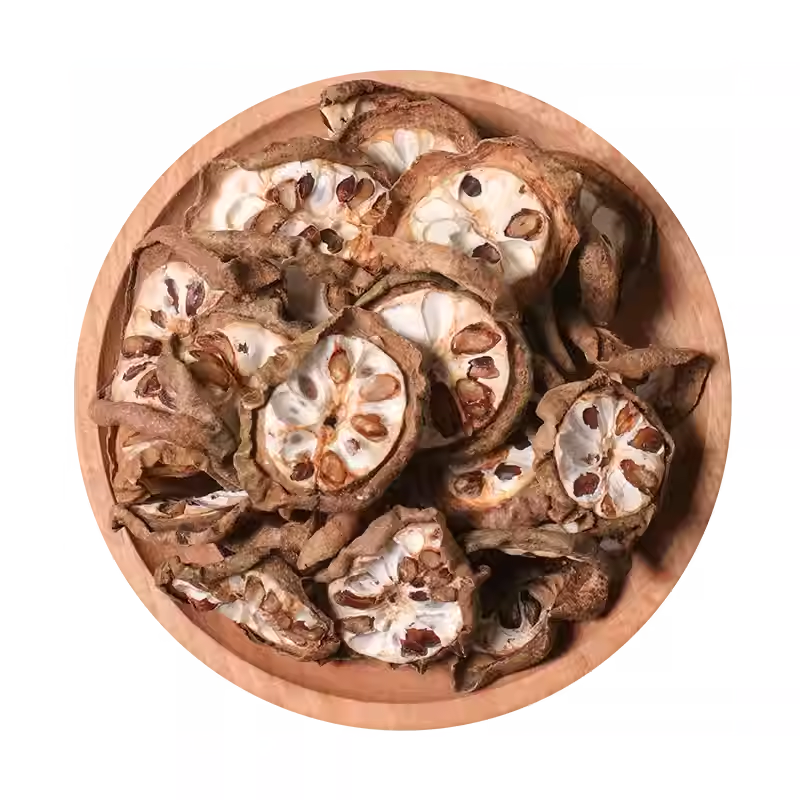Yu Zhi Zi: The TCM Herb for Liver Health and Pain Relief
- Hongji Medical

- Jun 8
- 4 min read
Yu Zhi Zi, also known as Melia azedarach seed or China Berry seed, is the dried seed of a tree in the Meliaceae family. It is valued in Traditional Chinese Medicine (TCM) for its ability to soothe the liver, relieve depression, promote qi flow, alleviate pain, and clear heat and dampness.
Its earliest mention appears in the Kaibao Bencao (Kaibao Materia Medica), which noted its use for treating chest and abdominal fullness, heart pain, and hernia pain.

Over time, Chinese medical scholars expanded its applications. In the Ming Dynasty, Li Shizhen’s Compendium of Materia Medica described Yu Zhi Zi’s appearance, growing regions, and effects, emphasizing its ability to relieve chest and abdominal discomfort and pain by soothing the liver and promoting qi flow.
It also dismissed the folk belief that it could predict good or bad fortune, focusing instead on its medicinal properties. Later texts like Bencao Tujing further detailed its uses, making it a recognized remedy in TCM.

Properties of Yu Zhi Zi
Nature and Channels
Taste: Bitter, pungent
Nature: Cold
Channels: Liver, Gallbladder, Stomach
Key Components
Yu Zhi Zi contains active compounds that contribute to its medicinal effects, though specific components are not detailed in traditional texts.
Main Benefits
Soothes the liver and relieves depression
Promotes qi flow and alleviates pain
Clears heat and dampness
Dosage
Typical dose: 3–9 grams, boiled in decoctions.
Growing Regions
Found in southern China, including Jiangsu, Zhejiang, Anhui, Jiangxi, Hunan, Hubei, and Sichuan.
Identification
Shape: Spherical or slightly flattened, 0.6–1.2 cm in diameter.
Color: Grayish-brown or brownish with net-like wrinkles.
Texture: Hard, difficult to break, with a white, oily seed kernel.
Scent and Taste: Mildly aromatic, bitter, and pungent.
Clinical Uses of Yu Zhi Zi
Yu Zhi Zi is used in TCM to treat various conditions:
Liver Qi Stagnation: It relieves symptoms like chest or rib pain, abdominal fullness, and emotional distress caused by liver qi stagnation.
Damp-Heat Jaundice: It clears heat and dampness, helping with symptoms like yellowing of the skin or eyes, nausea, and loss of appetite.
Hernia Pain: It alleviates lower abdominal pain that may extend to the testicles.
Trauma and Injuries: It reduces pain and swelling from bruises or sprains.
Specific Benefits
Soothing Liver and Mood: Yu Zhi Zi calms liver qi, easing emotional stress and discomfort.
Pain Relief: It promotes qi flow and relieves pain in the chest, ribs, or abdomen.
Clearing Heat and Dampness: Its cold nature helps treat jaundice or diarrhea caused by damp-heat.
Yu Zhi Zi in TCM Formulas
Yu Zhi Zi is often combined with other herbs in TCM formulas to enhance its effects. Here are some examples:
Chai Hu Shu Gan San (Bupleurum Powder to Soothe the Liver): Combines Yu Zhi Zi with Bupleurum, Cyperus, and Tangerine Peel to enhance liver-soothing and pain-relieving effects, used for chest or rib pain and irregular menstruation due to liver qi stagnation.
Yin Chen Hao Tang (Artemisia Capillaris Decoction): Includes Yu Zhi Zi with Artemisia, Gardenia, and Rhubarb to clear heat, remove dampness, and treat jaundice.
Ju He Wan (Tangerine Seed Pill): Pairs Yu Zhi Zi with Tangerine Seed, Toosendan Fruit, and Fennel to promote qi flow, relieve pain, and reduce swelling, used for hernia pain.
Comparison with Similar Herbs
Yu Zhi Zi shares effects with other TCM herbs but has unique strengths:
Cyperus (Xiang Fu): Soothes liver qi and relieves pain, but it is milder and better for menstrual irregularities due to qi and blood stagnation.
Toosendan Fruit (Chuan Lian Zi): Soothes liver qi and relieves pain but is colder, better for liver fire causing rib pain or bitter taste in the mouth.
Turmeric Root (Yu Jin): Promotes qi and blood flow and relieves pain, with stronger blood-activating effects for chest pain or trauma compared to Yu Zhi Zi’s broader liver-soothing action.
Modern Applications and Research
Modern research highlights Yu Zhi Zi’s benefits:
Analgesic Effects: Its extracts show significant pain-relieving properties.
Anti-Inflammatory: It reduces inflammation by suppressing inflammatory mediators.
Liver Protection: It lowers liver enzymes and improves liver function.
Anti-Tumor: In lab studies, its extracts show potential to inhibit tumor growth.
Clinically, Yu Zhi Zi is used for chronic hepatitis, cholecystitis, intercostal neuralgia, and breast hyperplasia, with promising results.
How to Use Yu Zhi Zi Safely
Precautions
Pregnant Women: Use cautiously due to its cold nature and blood-activating properties.
Spleen and Stomach Deficiency with Cold: Avoid use, as its cold nature may harm digestion.
Usage Tips
Yu Zhi Zi is typically boiled in decoctions for internal use. Always consult a TCM practitioner for proper dosage and suitability.
Conclusion
Yu Zhi Zi is a valuable TCM herb known for soothing the liver, relieving pain, and clearing heat and dampness. It treats conditions like liver qi stagnation, jaundice, hernia pain, and injuries, with modern research supporting its analgesic, anti-inflammatory, and liver-protective effects. To ensure safe and effective use, consult a TCM practitioner for guidance on dosage and application.






